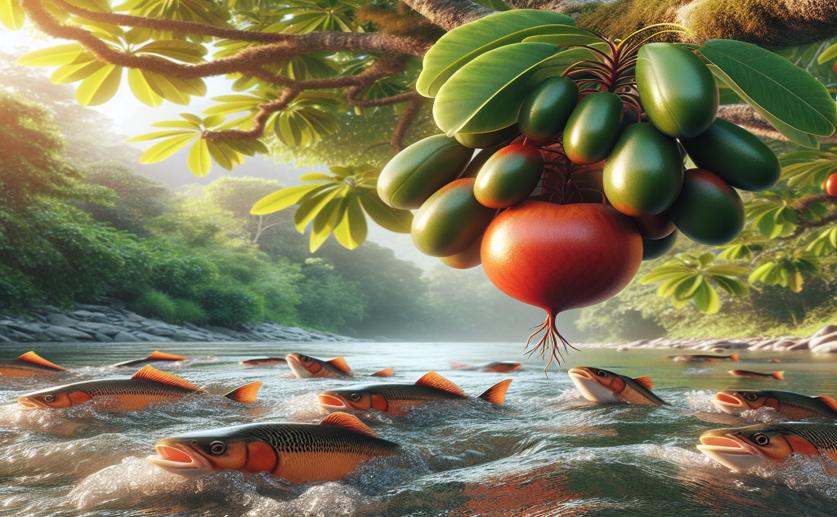
Exploring the Immune-Boosting Effects of Cyrtocarpa Edulis Fruit on Fish
Jim Crocker
30th January, 2024

Image Source: Natural Science News, 2024
References
Main Study
1) Cyrtocarpa edulis fruit and its immunostimulant effect on Almaco Jack Seriola rivoliana: in vitro, in vivo and ex vivo studies.
Published 29th January, 2024
https://doi.org/10.1007/s11259-024-10309-z



 26th January, 2024 | Jenn Hoskins
26th January, 2024 | Jenn Hoskins